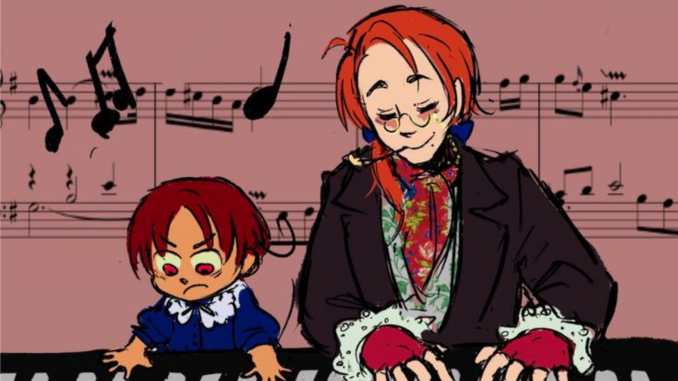
A lady from the organising committee of a literary festival called to share the details of an appointment: «So, for your ‘pick-up’ we have arranged a driver who will come to pick you up directly at your address. As for the timetable, I will soon send you a ‘Whatsapp’ with your contact so that you can ‘interface’ directly with him».
I stall. A kind of momentary block of the synapses, like when they tell you: “The son of the aunt of the girl of the brother of the best friend of the father”. Then, you have to build mental synoptic tables to solve the dilemma and understand what the other is trying to say. This processing operation may take between twenty seconds to half a minute.
“Hello,” says the lady. Like this. Without question mark. A sort of call to order, or rather a reproach of lack of reactivity. «Have patience», I say, «I am still busy with La Pista Cifrata».
“What?” She says confused. «The Puzzle Week game, do you know it? That of the dots. He joins them with a pencil and a shape comes out ». “Ah, yes,” replies the girl without understanding the analogy. «Well, it doesn’t matter. So, in summary, you now send me the driver’s number and I agree with him ». “Exactly!” She says delightedly, approving the translation.
When I hang up, I am seized by a slight fit of melancholy at how we are literally reducing the Italian language. I guess I got the verb right: to reduce. The Italian language is undergoing a progressive reduction based on grafts. We speak a little in Italian and a little in (fake) English (the majority of those who slip fashionable English terms into a conversation would be unable to hold up a phone call or give a directions to a tourist), plundering special terminologies, related to technology in particular, so, as in the phone call above suggests, when we talk to a driver to agree on the departure time, we ‘interface’ with him; and the purpose of using this alternative verb (which gradually takes the place of the original) is to soften a concept that does not need frills.
In the same way, to give another example, spreading news is said to “make it viral”, as if the infectious disease metaphor charged the news itself with drama, even if its interest does not go beyond the perimeter of the condominium in which it circulates. Even gossip, according to this logic, is viral. Therefore, whoever lives to make up for the facts of others is a healthy bearer of stranger intimacies. And if “interfacing” means relating to another human being, kissing is also a way of interfacing. At which one imagines a dialogue between lovers at the first approaches: “Why are you looking at me like that?”; “Because I love you. And I would love to ‘interface’ with your lips».
The problem is not the jargon. Nor is the metaphorical use of words belonging to specialised vocabulary. To oppose the freedom of language in order to feed on the great dictionary of the world would be a nostalgic and anti-historical position. It is to hybridise Italian in this ignorant and easy-going way, which makes it ridiculous. While Italian has an infinite range of modes of expression, and can be played like a piano, rather than a tambourine.




Be the first to comment